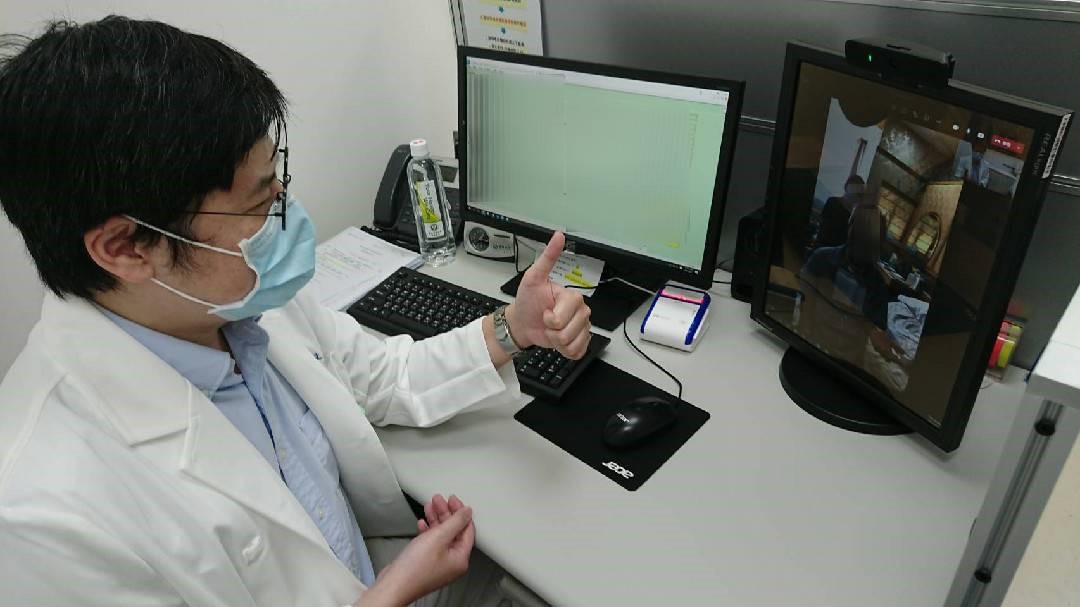According to the international studies, more than half of COVID-19 patients may have post-COVID-19 conditions after discharged from hospitals, including conditions of pulmonary, cardiovascular, and neuromuscular systems, and even psychological and cognitive function.
In addition to standard treatment in the acute phase, the COVID-19 patients undergo continuous care after discharge in Taipei Medical University Hospital (TMUH). TMUH has established a multidisciplinary COVID-19 care team including members from the departments of pulmonary medicine, physical medicine and rehabilitation, and cardiology to provide integrated and holistic care and follow-up according to each patient’ condition.
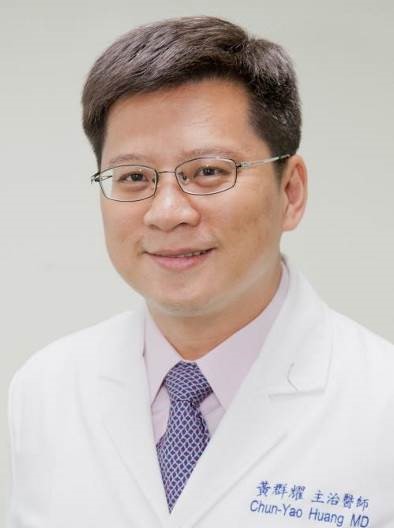
Dr. Chun-Yao Huang (黃群耀), Director of the TMUH Department of Internal Medicine and also a physician in the Department of Cardiology
Dr. Chun-Yao Huang (黃群耀), Director of the TMUH Department of Internal Medicine, also a physician in the Department of Cardiology, explained that COVID-19 is not only a pulmonary disease. It is also a disease of the cardiovascular system. Since the blood vessels and hearts also contains ACE2 receptors, invasion by SARS-CoV-2 will also trigger inflammation in the vascular endothelium and disorder in blood coagulation, resulting in vascular complications such as embolism and thrombosis in arteries and veins.
Unlike the commonly seen localized thrombosis or embolism, the one that results from coronavirus is widespread throughout the body and persistent. Systemic thrombolysis may cause massive bleeding; hence the treatment must be undertaken with great caution.
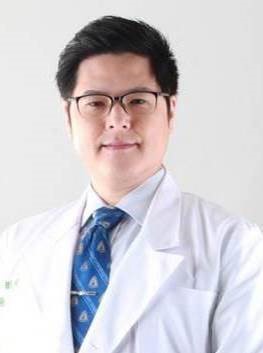
Dr. Yun-Yi Lin (林昀毅) from the TMUH Department of Physical Medicine and Rehabilitation
After successful thrombolysis, the rehabilitation team immediately engaged. Dr. Yun-Yi Lin (林昀毅) from the TMUH Department of Physical Medicine and Rehabilitation said that the TMUH COVID-19 Rehabilitation Team provides comprehensive rehabilitation to the COVID-19 patients throughout their whole hospitalization courses. The latest remote telerehabilitation technology had been utilized for the patients still isolated in the ICU and isolation wards. Furthermore, the nationally-first COVID-19 inpatient rehabilitation and post-acute care (PAC) program has been provided to the COVID-19 patients with dependency in basic mobility and activities of daily living (ADLs) in the TMUH.
After discharge, patients are invited to the TMUH “Post-COVID-19 Comprehensive Rehabilitation Clinic” to undergo regular post-COVID follow-up and specially-designed structural multi-system evaluation protocols, along with physical, occupational, speech therapy and psychotherapy if needed. An individualized 36-session post-COVID rehabilitation program is provided to patients with post-COVID-19 conditions to ensure their earliest and maximal recovery.
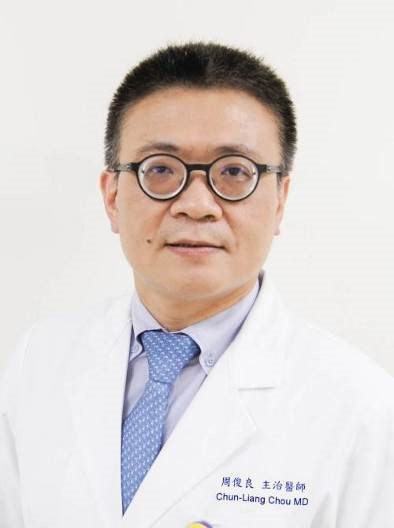
Dr. Chun-Liang Chou (周俊良), Director of the Epidemic Prevention Ward and also a physician in the Department of Pulmonary Medicine
[Pulmonary Rehabilitation]
Dr. Chun-Liang Chou (周俊良), Director of the Epidemic Prevention Ward and also a physician in the Department of Pulmonary Medicine, indicated that compared with SARS, COVID-19 is mostly mild, but its after-effects are more damaging. In the case of pulmonary after-effects, the destruction of alveolar cells leads to pulmonary fibrosis. In addition, the plasma proteins produced by the immune response block the bronchioles and cause atelectasis. Many severely-ill patients may have only 50% of healthy lung capacity, resulting in breathing difficulty. To increase the vital lung capacity of patients, TMUH provides “pulmonary rehabilitation”; after 3 to 7 days of treatment with a negative pressure ventilator, vital capacity can be restored to 100% in the most responsive patients.
[Exclusive Post-COVID-19 Rehabilitation Room]
Discharged COVID-19 patients may encounter one or more post-COVID-19 conditions lasting for more than 12 weeks. Some conditions could not be cured or alleviated by medications or other treatments, and may require further outpatient rehabilitation.
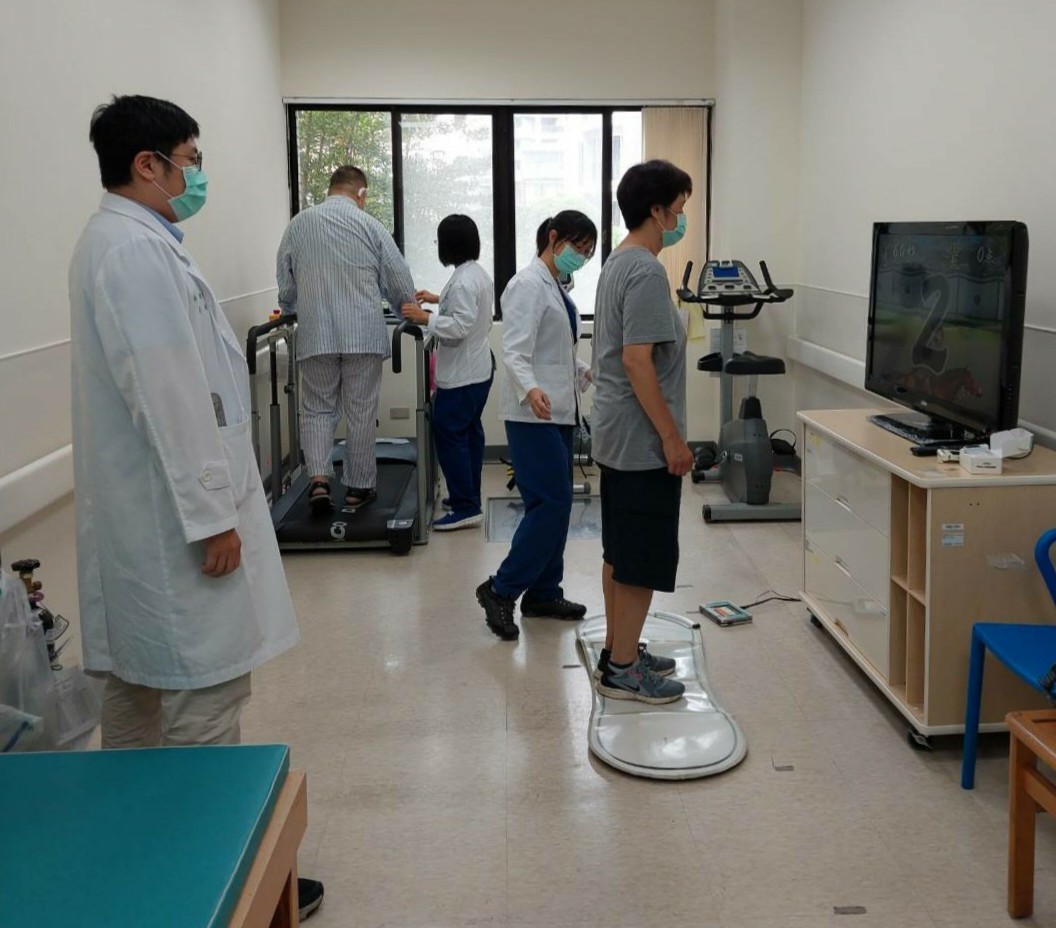
To provide the best and safest rehabilitation environment for the COVID-19 patients, TMUH has established an exclusive post-COVID-19 rehabilitation room. This specially-designed rehab. gym is equipped with treadmills, stationary bicycles, arm ergometers, and other cardiopulmonary rehabilitation equipment to restore their cardiopulmonary function. The latest motion-sensing and augmented reality (AR) gaming systems are also introduced into the post-COVID rehabilitation to train their movements, posture, fitness, agility, concentration, memory and other cognitive function. The gym is staffed by experienced physical and occupational therapists to provide delicate one-on-one training. The therapists also regularly monitor and record vital physiological parameters such as oxygen saturation, blood pressure, and heart rates before, during, and after the therapy for each patient to ensure their safe, efficient and comfortable rehabilitation experience.
[Remote Post-COVID-19 Rehabilitation Telemedicine Clinic]
If the discharged COVID-19 patients are not allowed or unable to leave home due to self-health management status or the use of oxygen supply or respirators, the TMUH Telemedicine Center also provides the remote “Post-COVID-19 Rehabilitation Telemedicine Clinic” for them. This telemedicine clinic allows COVID-19 patients to attend video visits from home with their cellphones or tablets, so that they can continue to undergo follow-up and home rehabilitation exercise guidance during this period. In this way, the patients can still get their medication prescriptions and perform rehabilitation exercises at home to speed up their recovery.
 Orbit Logo" />
Orbit Logo" />

